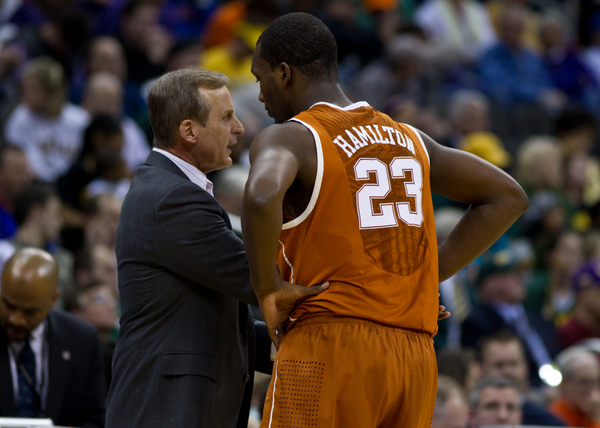Behind the Numbers: Cliches and Champions
Posted by KCarpenter on February 25th, 2011I like cliches, because they give me something to do. The proverbs of the sporting world and the received aphoristic wisdom of our hallowed forefathers are well-known and often taken for granted. They are also, fortunately, not too hard to test or analyze. I’m a fairly agreeable guy, but I must say, few things give me as much joy as being contrary in the face of stupid cliches. It’s an easy thing to do in the blogosphere, equivalent to shooting fish in a barrel, and there are many out there who are better gunslingers than I. But, for now, let’s joyously take aim at the hoariest one of all: “Defense wins championships.”
Obviously, playing some defense is necessary to win anything. No one is arguing with that. But what the phrase really seems to mean is that teams with excellent defenses are the ones that win the big one. More than that, the phrase implies that defense, above offense, is the thing that separates the great teams from the good ones. Like so many things, it seems like our little proverb has things half right. In college basketball, the national champions have all been excellent defensive teams. The worst defenses to have won the title since 2003 are Syracuse (in 2003), or arguably, North Carolina in 2009 and even then, both of these teams had defenses that ranked in the top twenty in terms of defensive efficiency. Teams with bad defenses don’t win championships. If we want to take our proverb only this far, we can be happy.
The suggestion that quality defense is more important than quality offense is where the trouble starts. While every title-winning team since 2003 has had a quality defense, they have also all had quality offenses. The worst offense of any of these teams also belonged to that 2003 Syracuse team and it was, by Ken Pomeroy’s reckoning, the eleventh best in the country. So, it seems that we could, if we wanted, reasonably compromise and say, “Offense and defense win championships,” but that is ridiculously banal, and reasonable compromise is kind of boring. If you want to pick only one, offense is what wins championships.
Championship teams have both a good offense and a good defense, but historically (since 2003), championship teams have a better offense than they have defense. The way I’m determining this is simply by comparing the differences between a team’s offensive efficiency and the Division I average and the a team’s defensive efficiency and that same average [see complete list of 2010-11 teams with averages here]. So, for example, in 2010, the average offensive efficiency rating was 100.8, while Duke posted an offensive efficiency of 123.5 and a defensive efficiency of 85.9. So while the Blue Devils were killing their opponents on both ends, more damage was being done on the offensive end. By contrast, Butler had an offensive rating of 110.2 and a defensive rating of 86.2, meaning that they got their wins more from their defense than offense. We know who won, and it’s not surprising. Every team that went all the way since 2003 was a better offensive team than defensive team. Of the runner-ups, only 2010 Butler, 2006 UCLA, and 2004 Georgia Tech were better defensive teams than offensive teams, and, again, all three teams ended up losing to a more offensive-minded team. Defense may occasionally get you to the championship game, but, at least in recent history, it won’t bring you home any hardware.
Well, what does this mean in late February 2011? It means that a few of the top contenders in college basketball who look good because of their stalwart defense might not actually be built to come out on top. Specifically, Texas and San Diego State’s relatively poor offensive efficiency has been mostly covered up by excellent defense. This suggests that neither team has what it takes to ultimately cut down the nets in Houston, despite otherwise very impressive showings. There are a few other RTC Top 25 teams that are more defensively oriented, notably North Carolina, Utah State, Illinois, Louisville and Temple, though I think few outside of the respective fanbases believe that any of these teams have more than a very small chance of winning the championship. So if these fans needed a new reason to worry about their chances of great success in the tournament: You are welcome. Offense wins championships and these teams just don’t have enough.
That said, if there was ever a team that needed to hear about the importance of defense, it’s Wisconsin. While Bo Ryan’s team boasts the best offense in the land, a championship in Madison seems unlikely as long as the Badgers keep posting a 94.1 defensive rating. As good as Wisconsin is, no team in recent history has won the championship while defending so poorly. Notre Dame, Georgetown, and Arizona are largely in the same boat, though each has a much less efficient offense than Wisconsin.
The past is prologue, but the past is also, crucially, merely history. A primarily defensively-oriented team has not won the championship in the past eight years, but that doesn’t mean that it can’t happen. Between 2003 and 2009, every team that won the championship played at an above average pace (another bad sign for glacial Wisconsin). In 2010, Duke won it all as the 249th fastest team in the country. Admittedly, Duke played faster than plodding Butler (292nd fastest.), but the essential point remains: trends aren’t prophecy. They could very well be partying in the streets of Austin in early April, and I wouldn’t dare begrudge anyone that hope.











































